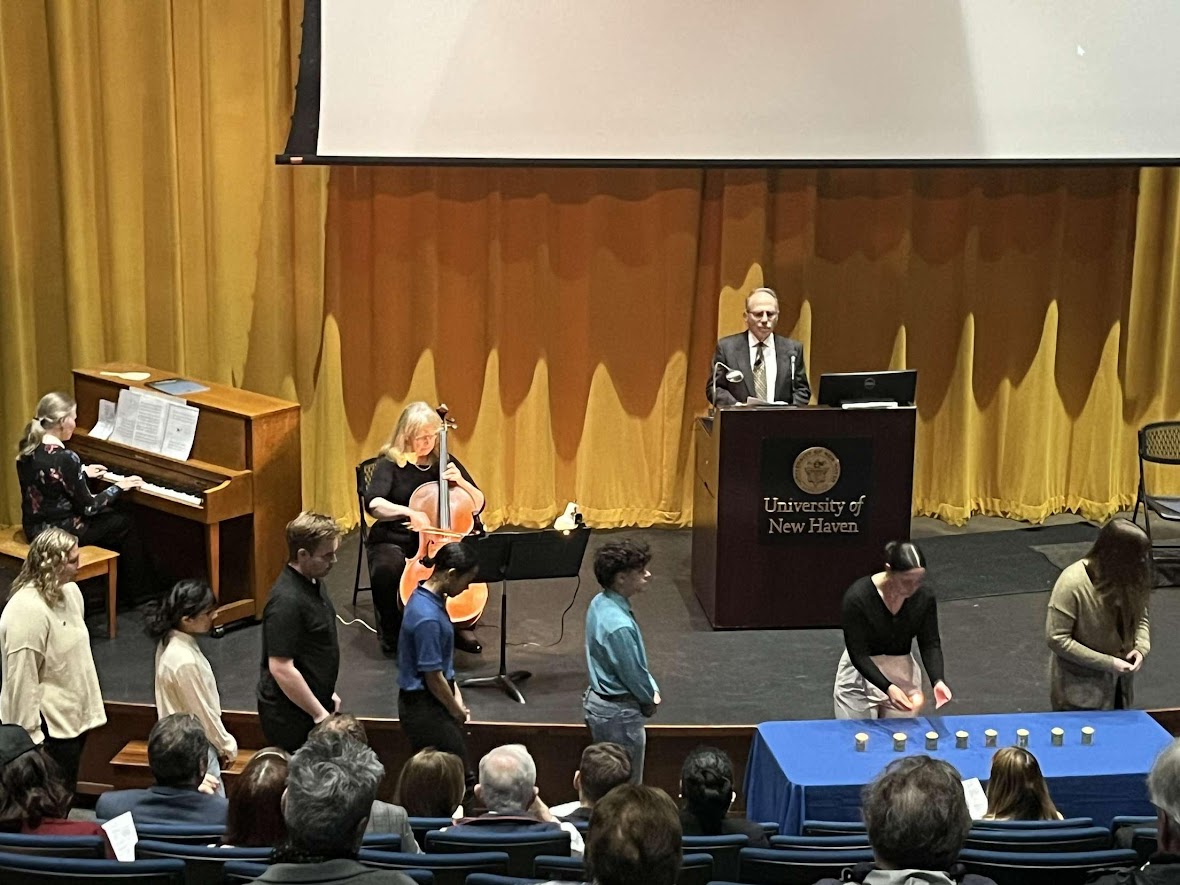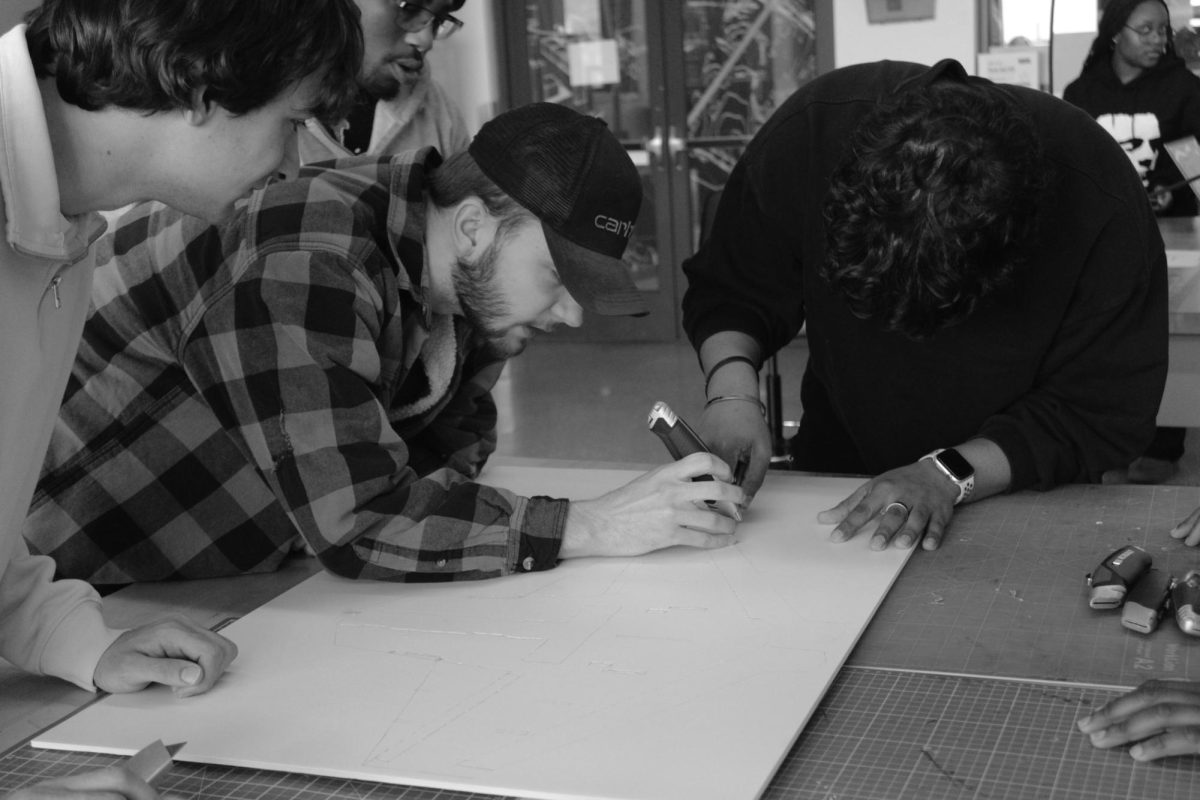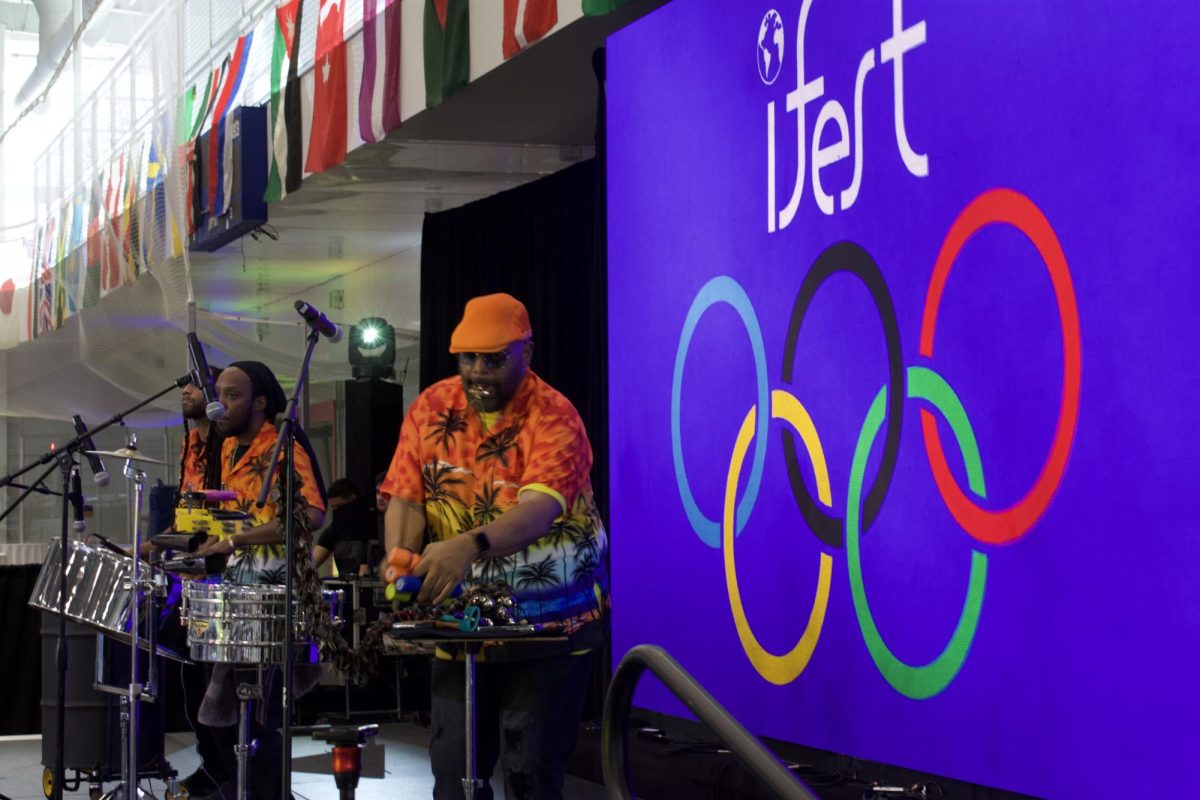Last week, the university observed their 20th annual Holocaust Remembrance ceremony.
“This annual event has long been one of the university’s most poignant and impactful programs,” wrote Jens Frederiksen, university president, in an email. “I am sure that this will be the case again this year.”
Bucknall Theater was filled with supporters and families, as well as students in attendance.
The ceremony began with Nancy Savage, interim provost and vice president for academic affairs, giving a welcome speech.
“The Holocaust is among the greatest of all calamities that befall the Jewish people,” Savage said. The observance was to honor the memory of people who were targeted and murdered and those who were targeted but survived the Holocaust.
“The University of New Haven takes this observance quite seriously, both as a remembrance and an opportunity for bettering society through its sponsorship and cultivation for the many related activities and programs,” said Savage.
Eight candles were lit to mark the 8 million who were massacred in the Holocaust. As a sign of acknowledgement for the genocide, the color guard came out and saluted the flag as well.
Keynote speaker Paul Goldstein was introduced and he spoke about his parents’ experiences in Nazi-occupied Poland and gave a first-hand account of the horrors the Jews experienced there. Goldstein first spoke to the general public about his parents’ experiences six years ago, in which he has since presented his stories to over 13,000 students, teachers and other adult audiences in New England and Florida.
“It is indeed a solemn honor to be invited here for a Holocaust Remembrance Day,” said Goldstein. “Together we commemorate those who survived and those who lost their lives during a time of unparalleled inhumanity.”
“As a second-generation survivor, it is up to me to step up into my parents’ shoes, and tell their stories,” he said. “This was my parents’ plea to each successive generation, so that way the truth is never forgotten.”
Goldstein’s speech revolved around one theme: This is what hate does.
He spoke about the horrors, which included the Nazi party spreading false propaganda that led to the dividing and differentiating of racial groups.
“They used phrases like ‘the poisoning of racially pure blood,’ and more explicitly, ‘the infestation of Jewish vermin, serpents, parasites, and rats,’” said Goldstein.
Goldstein’s parents were forced to leave their home to move into settlements that were essentially Jewish ghettos.
“Over 400,000 Jews were sent to the ghettos,” said Goldstein. “That’s the same number of people who live in Hartford and Bridgeport combined, crammed into about one square mile.”
He said sometimes there was such a lack of food and water that Jews were forced to drink their own urine, especially when a horrible outbreak of typhus affected his parents’ enclosure.
“It is imperative we remind ourselves and our students of our humanity,” Goldstein said. “Because this is what hate does.”
Then university officials such as Frederiksen and Ophelie Rowe-Allen read names of Holocaust victims related to or known by members of the Charger community.
The ceremony ended with Rabbi Benjamin E. Scolnic blessing the audience.








